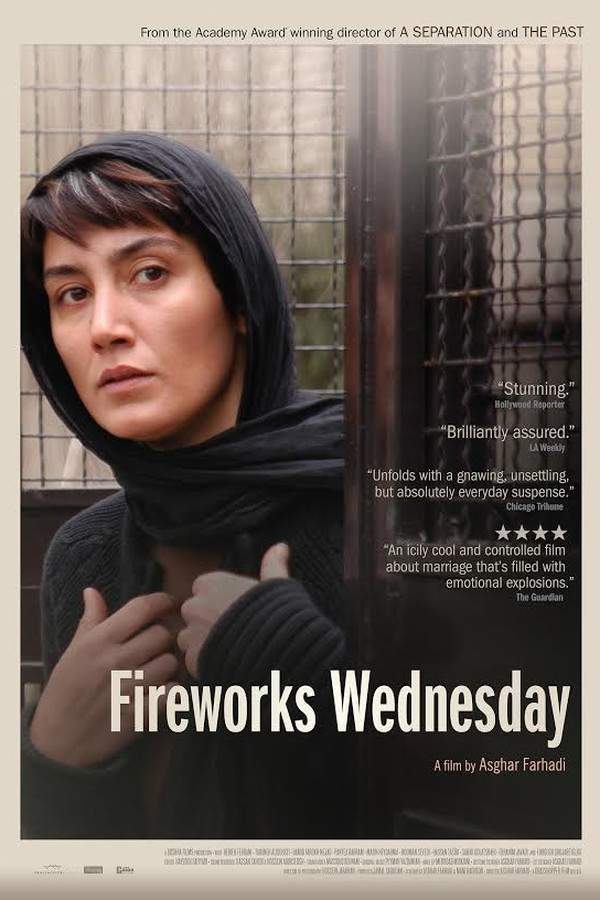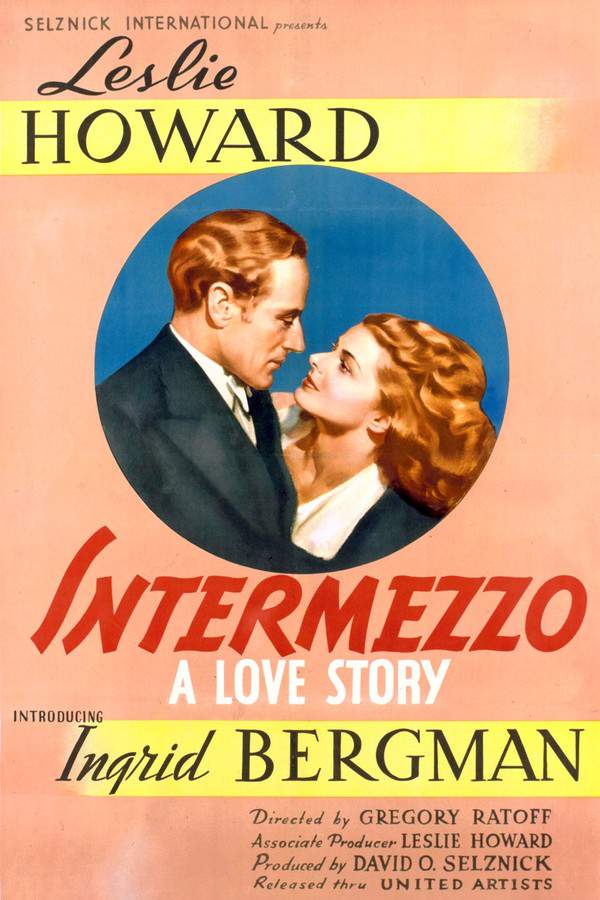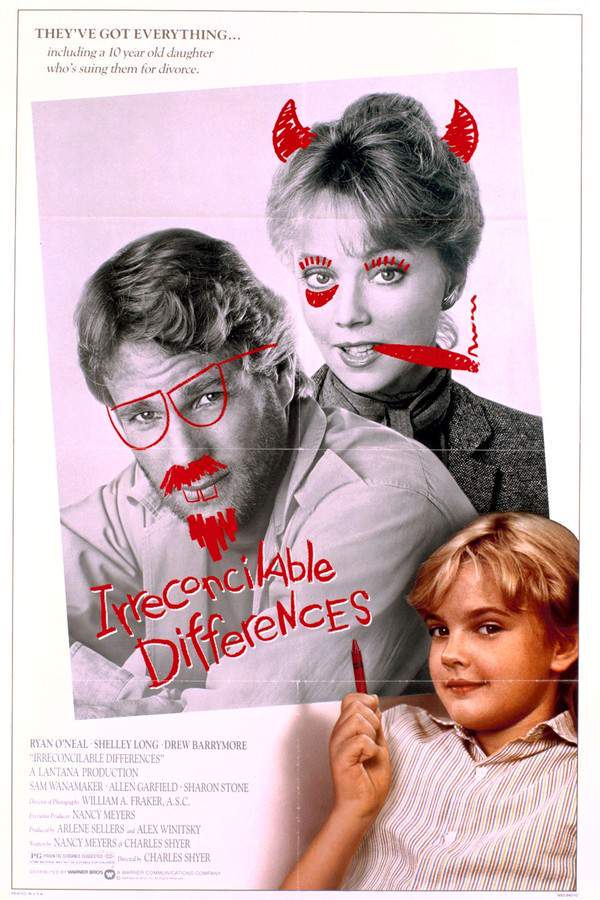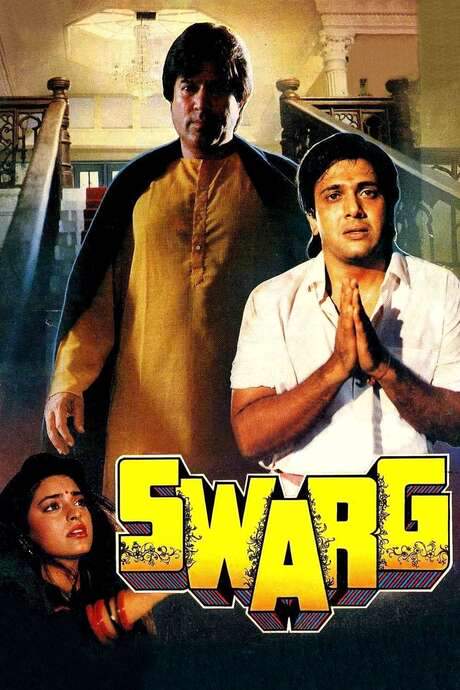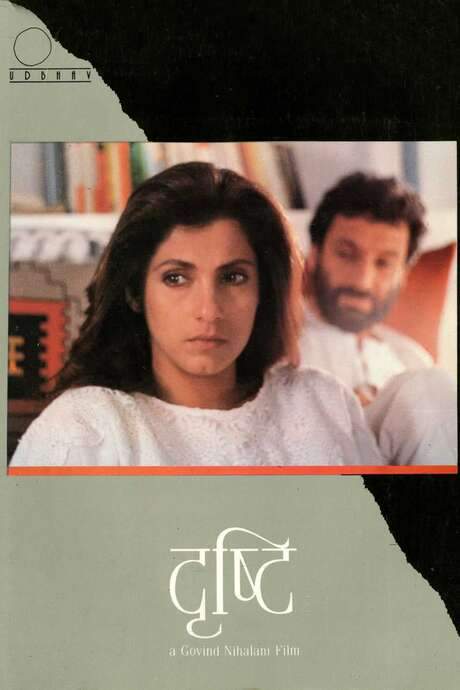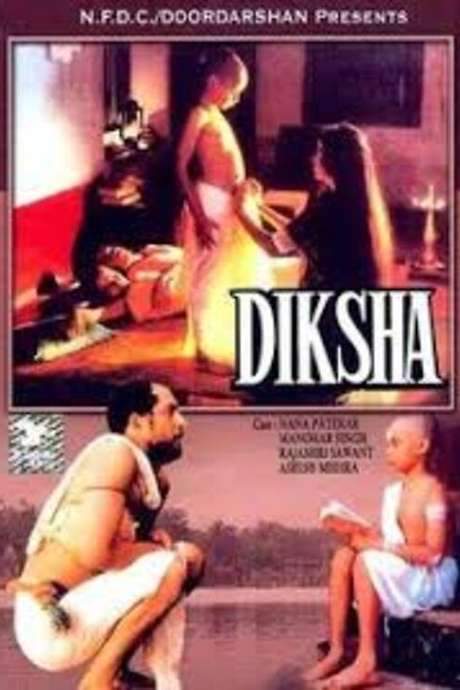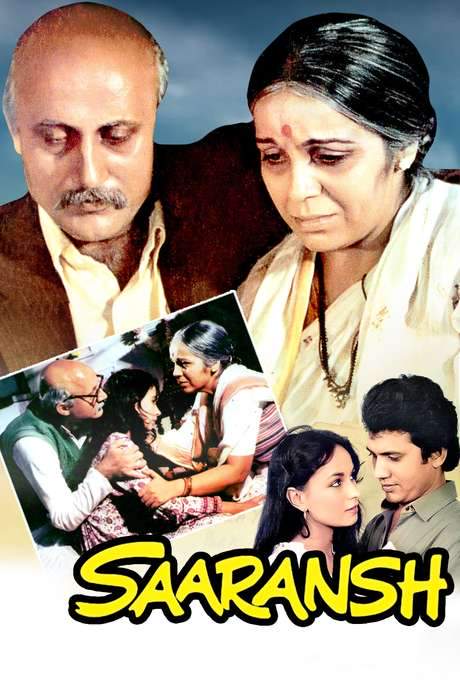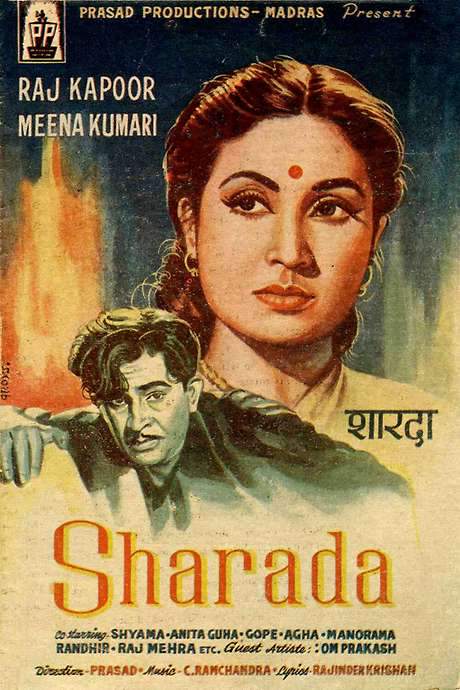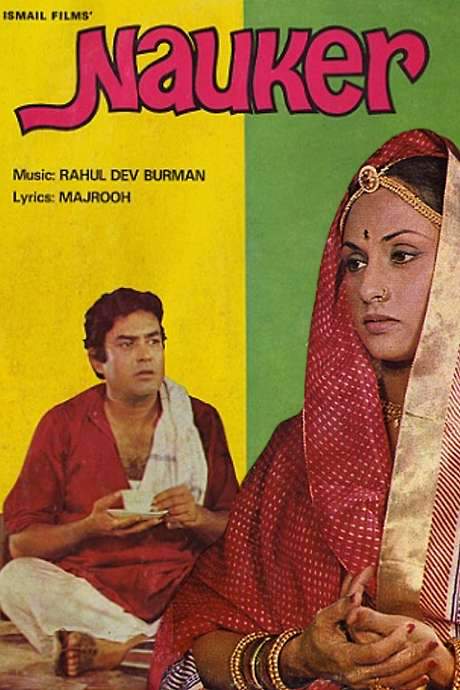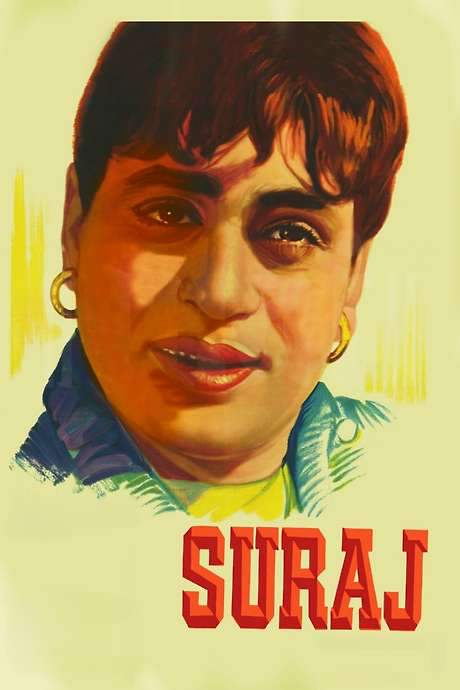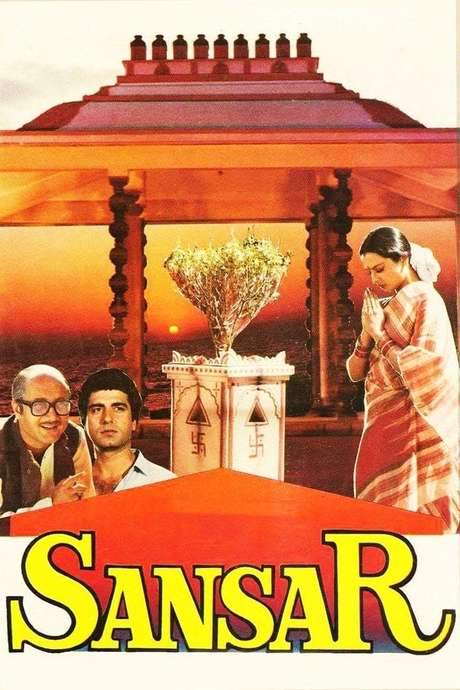
Sansar
Year: 1987
Runtime: 114 mins
Language: Hindi
Director: Rama Rao Tatineni
Din Dayal Sharma is a head clerk living with his wife Godavari, their three sons—Vijay, a Chartered Accountant married to Uma, Shiva and Vidyasagar—and daughter Rajni. Vijay is the main earner. When Rajni’s marriage is arranged with Jagmohan’s son, she refuses and marries Christian Peter Fernandes, moving into his home.
Warning: spoilers below!
Haven’t seen Sansar yet? This summary contains major spoilers. Bookmark the page, watch the movie, and come back for the full breakdown. If you're ready, scroll on and relive the story!
Sansar (1987) – Full Plot Summary & Ending Explained
Read the complete plot breakdown of Sansar (1987), including all key story events, major twists, and the ending explained in detail. Discover what really happened—and what it all means.
Set against the backdrop of a bustling town, the film follows the life of a postmaster and his family, where a gentle facade hides growing tensions beneath the surface. The father Deendayal Sharma [Anupam Kher] is a stern yet tender patriarch who anchors the household with a strict code of duty and tradition, and his wife Godavari stands as the quiet strength who tries to keep harmony intact even as tensions simmer. Their older son Vijay Kumar D. Sharma [Raj Babbar], a government employee, carries the weight of expectations both from his career and from the family, while his wife Uma [Rekha] shares in the drive for stability and success.
The younger generation adds fuel to the fire. Shiva, a car mechanic, and Vidyasagar, whose name means “ocean of knowledge,” struggle to clear his schooling, while their sister Rajni works in a private company. Rajni’s bold heart leads her to a controversial choice: she refuses a proposed match arranged for her, and instead declares she wants to marry Peter [Shekhar Suman], a Christian colleague from her office. The family is divided—some plead for tradition, others edge toward acceptance as they meet Peter’s educated, cultured family, and Basanti steps in to help Vidyasagar with his studies, even as her own married life begins to strain under the time and attention Vidya requires.
Drama intensifies as Rajni’s relationship with Peter creates friction with her father-in-law and the broader clan. She quits her job after a heated clash over trifling issues, and the house is already tense with disagreements. Vijay grows frustrated about his share of money, warning that his family is expanding and that he may not be able to contribute as before. Deendayal tries to reason, only to have the conflict escalate, culminating in him asking Vijay to leave the house after a heart-wrenching claim that the 18000 rupees he contributed for Rajni’s wedding should be returned. In response, Deendayal draws a hard line, literally partitioning the home to separate the two factions, and he retires early to gather the funds needed to restore balance—working double shifts at a shop and as a security guard.
Uma leaves to be with her own mother while she is pregnant, returning months later with a newborn to a household still fractured by the rift. The absence of harmony pushes Rajni into further quarrels, and eventually, Rajni’s arguments with Peter and the contentious atmosphere at home take their toll. Yet amidst the strain, Uma returns and the family begins to see that reconciliation may require strangers-in-the-house to become a united front against their own egos.
In the quieter corners of the home, Panditji [Dinesh Hingoo] offers small, measured counsel, reminding everyone that tradition can coexist with tenderness if given a chance. The once-divided house begins to lean toward healing as Gangubai [Gangubai] butler-cook and confidante, played by the steadfast Gangubai’s presence, and the family’s matriarchs join hands to sew back the torn threads of kinship. The film closes on a note of tempered reconciliation, showing that love, patience, and a willingness to listen can slowly mend even the deepest fissures.
The story is a study in family dynamics where pride, duty, and affection duel for control, and where the cost of ego is a fractured home that yearns for reunification. The ensemble cast breathes life into a timeless drama about parental authority, youthful ambition, and the quiet bravery of choosing to come back together.
Last Updated: October 09, 2025 at 14:38
Explore Movie Threads
Discover curated groups of movies connected by mood, themes, and story style. Browse collections built around emotion, atmosphere, and narrative focus to easily find films that match what you feel like watching right now.
Movies about tense family fractures like Sansar
Stories where simmering family tensions lead to a household divided.If you liked the tense drama of Sansar, explore more movies like it that delve into family conflict, parental authority, and the emotional fallout from a household divided. These similar stories capture the strained, dramatic, and ultimately bittersweet feel of generational clashes.
Narrative Summary
Stories in this thread typically follow a family whose stability is tested by a single event, like a defiant marriage or financial dispute. The narrative escalates through a series of interpersonal crises, often culminating in a physical or emotional separation before a tentative, hard-won reconciliation.
Why These Movies?
Movies are grouped here for their shared focus on domestic tension, the clash between tradition and modernity, and a sobering yet hopeful emotional arc. They share a medium-intensity, character-driven pace and a tone that is consistently dramatic and strained.
Movies with bittersweet reconciliations like Sansar
Emotional journeys where resolution is earned but leaves scars.Find more movies like Sansar that end on a note of tempered hope. These similar drama stories focus on emotional healing after major conflict, offering a bittersweet and sobering yet ultimately hopeful conclusion that feels earned and realistic.
Narrative Summary
The defining pattern is an emotional journey from fracture towards a fragile mending. Characters reach a point of understanding or acceptance after a significant struggle, but the resolution is tinged with sadness or the acknowledgment of permanent change. The ending feels realistic and satisfying without being saccharine.
Why These Movies?
These films are united by their bittersweet emotional payoff. They explore serious relational strife but avoid total despair, concluding with a sense of tempered healing. This shared ending feel, combined with a medium emotional weight and dramatic tone, creates a coherent viewing experience.
Unlock the Full Story of Sansar
Don't stop at just watching — explore Sansar in full detail. From the complete plot summary and scene-by-scene timeline to character breakdowns, thematic analysis, and a deep dive into the ending — every page helps you truly understand what Sansar is all about. Plus, discover what's next after the movie.
Sansar Timeline
Track the full timeline of Sansar with every major event arranged chronologically. Perfect for decoding non-linear storytelling, flashbacks, or parallel narratives with a clear scene-by-scene breakdown.

Characters, Settings & Themes in Sansar
Discover the characters, locations, and core themes that shape Sansar. Get insights into symbolic elements, setting significance, and deeper narrative meaning — ideal for thematic analysis and movie breakdowns.

Sansar Spoiler-Free Summary
Get a quick, spoiler-free overview of Sansar that covers the main plot points and key details without revealing any major twists or spoilers. Perfect for those who want to know what to expect before diving in.

More About Sansar
Visit What's After the Movie to explore more about Sansar: box office results, cast and crew info, production details, post-credit scenes, and external links — all in one place for movie fans and researchers.

Similar Movies to Sansar
Discover movies like Sansar that share similar genres, themes, and storytelling elements. Whether you’re drawn to the atmosphere, character arcs, or plot structure, these curated recommendations will help you explore more films you’ll love.
Explore More About Movie Sansar
Sansar (1987) Scene-by-Scene Movie Timeline
Sansar (1987) Movie Characters, Themes & Settings
Sansar (1987) Spoiler-Free Summary & Key Flow
Movies Like Sansar – Similar Titles You’ll Enjoy
Yeh Teraa Ghar Yeh Meraa Ghar (2001) Full Summary & Key Details
Swarg (1990) Complete Plot Breakdown
Drishti (1990) Complete Plot Breakdown
Umbartha (1982) Full Summary & Key Details
Diksha (1991) Full Summary & Key Details
Saaransh (1984) Full Movie Breakdown
Ghar Sansar (1986) Full Summary & Key Details
Ghar Sansar (1993) Full Summary & Key Details
Motor Sundaram Pillai (1966) Full Summary & Key Details
Sharada (1957) Detailed Story Recap
Anthuleni Katha (1976) Detailed Story Recap
Biraj Bahu (1954) Complete Plot Breakdown
Prem Nagar (1974) Story Summary & Characters
Nauker (1979) Plot Summary & Ending Explained
Suraj (1966) Detailed Story Recap

